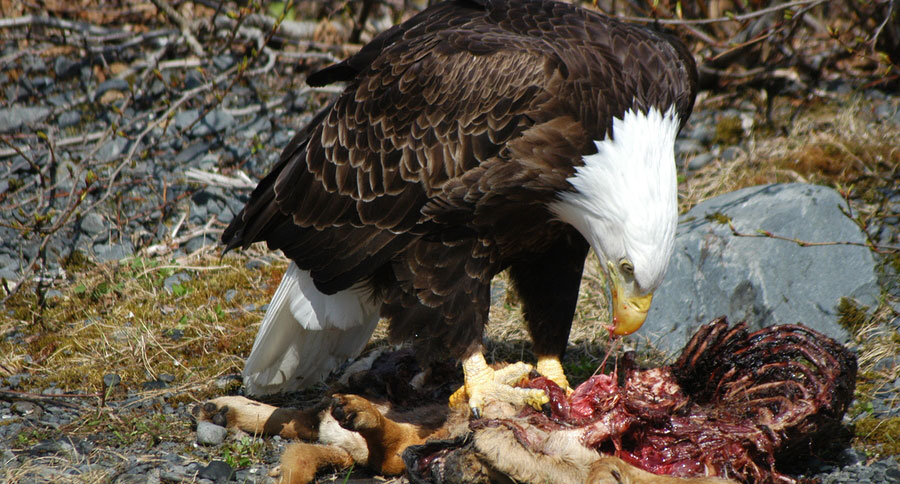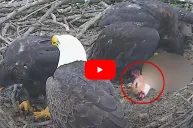A series of poisonings have left officials investigating a pesticide that may be killing bald eagles.
Maryland has been experiencing a number of poisoning incidents on its eastern shore in Talbot and Kent counties for some time now. On March 1, officials found more dead animals, which included six bald eagles and a great horned owl, as well as other injured eagles that ultimately received treatment.
Since then, wildlife officers from the Maryland Department of Natural Resources and the U.S. Fish and Wildlife Service have responded to various calls about eagle carcasses in the area.
Then, on April 3, wildlife officials responded to a call about three eagles showing signs of poisoning after feeding on a red fox carcass. Two recovered with treatment, but the third died at the scene.
Back in February 2016, the Maryland Department of Natural Resources found 13 eagles that died of similar causes in the same area. And, with the evidence continuing to mount up, officials are confident someone is intentionally poisoning foxes, raccoons, and other nuisance animals in the area.
They suspect someone is setting out bait laced with carbofuran, an extremely toxic carbamate pesticide. While this is the liquid form of Furadan, the granular form was banned by U.S. Environmental Protection Agency in 1991, as millions of birds every year would mistake the grains for seeds and die.
Birds are less likely to directly ingest the liquid form of the pesticide, but it's still lethal when placed in bait.
Officials believe someone is successfully poisoning the nuisance animals, and unintentionally poisoning bald eagles that feed on them.
The USFWS is offering a reward up to $10,000 to anyone willing to come forward with information that might accelerate the investigation.
"It is hard to believe that not believe that none one person has information of persons placing a toxic poison that has killed no fewer than 2o eagles in these areas," said Resident Agent in Change Jay Pilgrim in a statement. "The only way this stops is if the local communities come forward with information."
To make an anonymous report, call or text 443-433-4112, email [email protected], or use the DNR mobile app.
NEXT: FIRST YELLOWSTONE GOLDEN EAGLE FITTED WITH TRACKER DIES OF LEAD POISONING
WATCH




